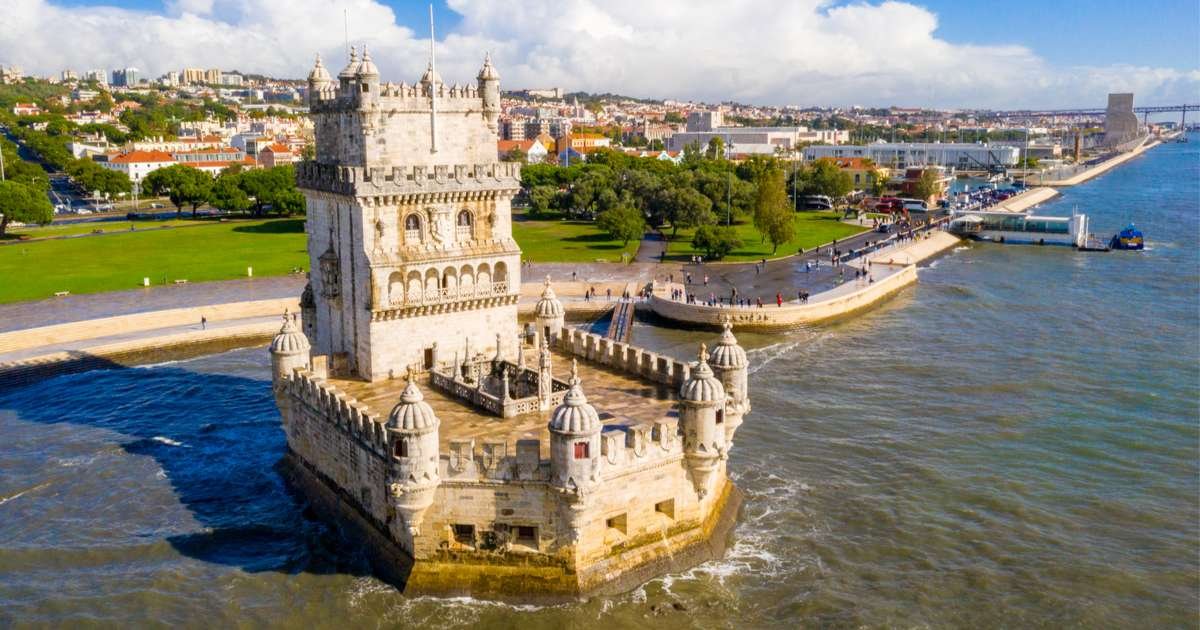The Tower of Belém, built to defend the city, is not only one of the top 10 attractions of Lisbon, but also the most famous historical landmark in Portugal.
Perched on the banks of the Tagus River, the 16th century medieval fortress is an enduring symbol of Portugal's powerful maritime empire. With its history and impressive architecture, the UNESCO World Heritage Site should be on every traveler's itinerary.
In this guide, read everything you should know before your visit, including the history, the top things to do, directions, hours, and more.
Let’s start!
Other Recommended Articles:
50 Best Things to Do in Lisbon
Public Transportation in Lisbon
Recommended Hotels in Lisbon
Things to Do with Kids in Lisbon
Best Restaurants in Lisbon
Shopping in Lisbon
Important Update: Belém Tower is Closed
Belém Tower is currently closed for restoration and is not accessible to visitors. It is expected to reopen in spring 2026, depending on construction progress. Tickets are not available during this time. Check for updates in case of partial reopenings.
Entrance, Tickets, and Tours to Tower of Belém
- Entrance: The Tower of Belém is open every day, except for Mondays. From October to March, it is open between 10 and 17:30. From April to September, the tower is open between 10 and 18:30. The Tower of Belém is closed on 1 January, Easter Sunday, 1 May, 13 June, 24 and 25 December.
- Tickets: Check out an exclusive selection of the most popular tickets for the Belém Tower here!
- Tours: Visitors who want to dive deeper into the rich history of the tower will appreciate the ticket with audio guide, allowing you to discover the landmark on your own pace. More details.
- Traveler’s Tip: The entrance is free for Children aged 12 and under, holders of the Lisboa Card, unemployed EU citizens (proof required), on 18 April and every Sunday during European Heritage Days.
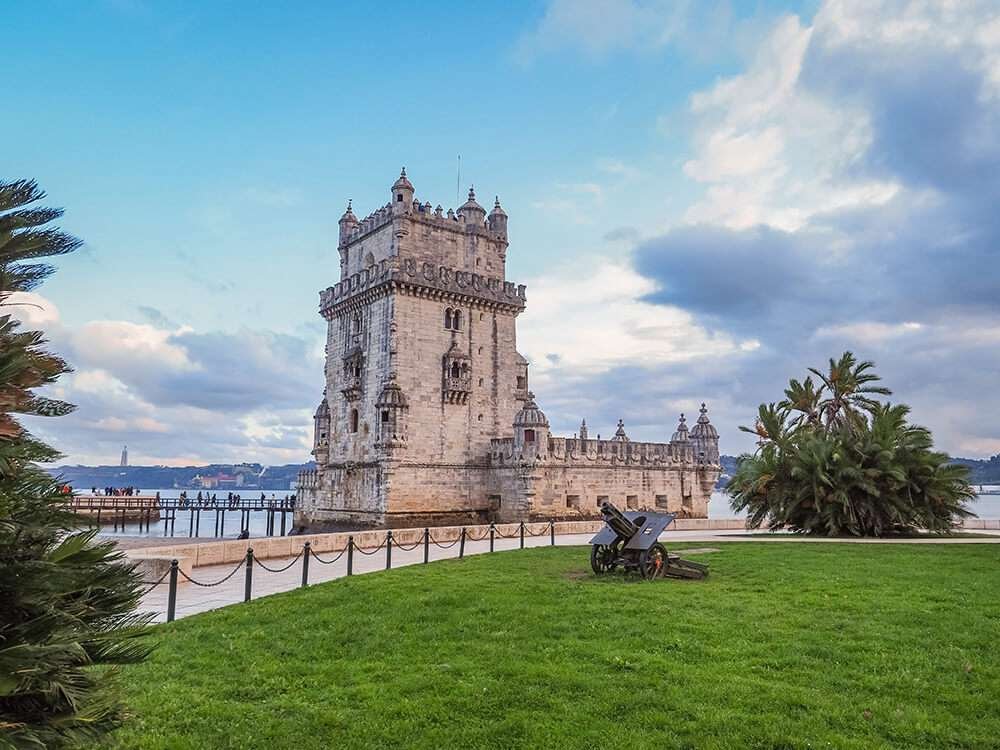
Things to do at the Tower of Belém
The Tower of Belém, one of Lisbon's most remarkable monuments, was the starting point of numerous voyages to the New World. It is therefore considered an iconic symbol of Portugal's Age of Discoveries and is an absolute must-see.
It was built during the reign of King Manuel I as part of a defensive system and at the same time as a ceremonial gateway to Lisbon, and later also served as a prison and lighthouse, among other things. A visit to this Manueline jewel is like a short trip through 500 years of Portuguese history.
See below some of the highlights not to be missed:
1. Architecture of the Tower of Belém
One of the most striking features of the Belém Tower is its unique architecture. Standing in front of the tower, admiring its exterior, is therefore a mind-blowing experience.
The Tower of Belém was made of Lioz limestone and built by military architect and sculptor Francisco de Arruda in the Portuguese Manueline style of the late 16th century. The influences of Moorish architecture are also clearly visible, for example in the watchtowers, arched windows and balconies.
Remarkable is the base of the structure, a bastion from which a 30-meter tower rises.
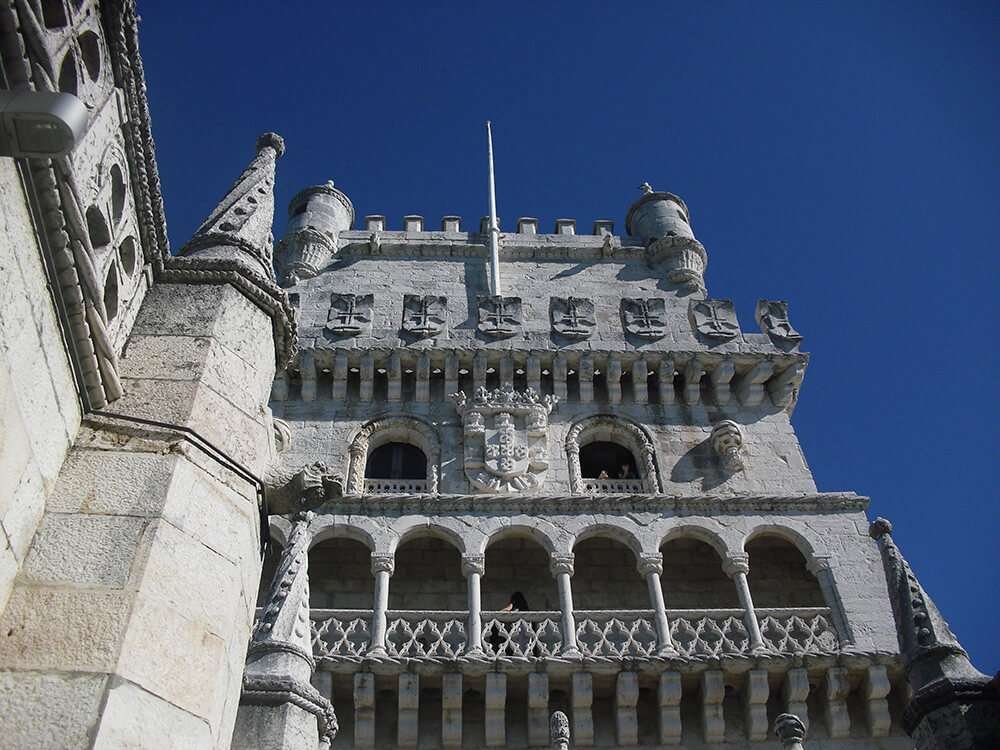
2. Decorations
A closer look at the exterior reveals a wealth of decorations, sculptures, gargoyles, pillars, arches, and cupolas.
Particularly noteworthy are the many stone motifs that adorn the façade and show religious symbols, exotic animals or references to the discoveries of Portugal. You can find Saint Vincent, the Patron Saint of Lisbon, the royal coat of arms, twisted ropes and knots as well as the cross of the Order of Christ.
Don't miss the figure in the shape of a rhinoceros on the west façade. What makes it interesting is that this is the first time this animal has been used in Western European art.
→ If you'd like to explore more European art, across the street is the Belém Cultural Center which contains one of Lisbon's best museums.
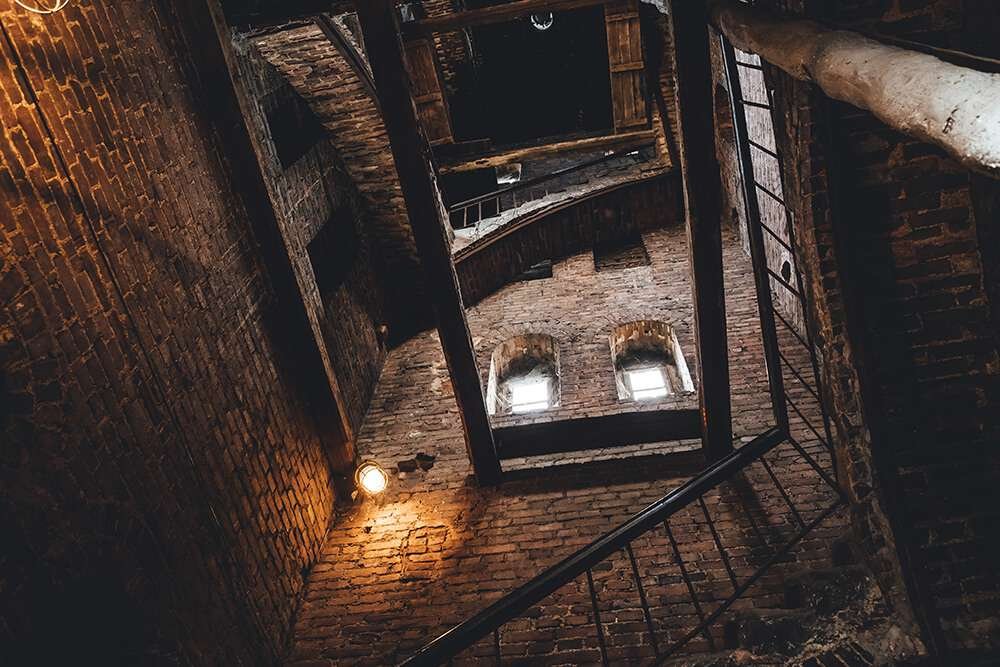
3. Inside Tower of Belém
It is possible to enter the Tower of Belém and take a close look from inside. There are four floors in total, which are connected by a rather narrow spiral staircase.
When entering, you will first see the artillery rooms with 16 openings for the cannons that were used for defense. You can even discover ditches from the time the tower was used as a dungeon for political prisoners.
When touring this architectural gem, you can discover the Governor’s Room with a vaulted cistern, the Kings’ Room with great acoustics and a loggia overlooking the river, the Audience Room and the Chapel with its typical 16th-century vaults.
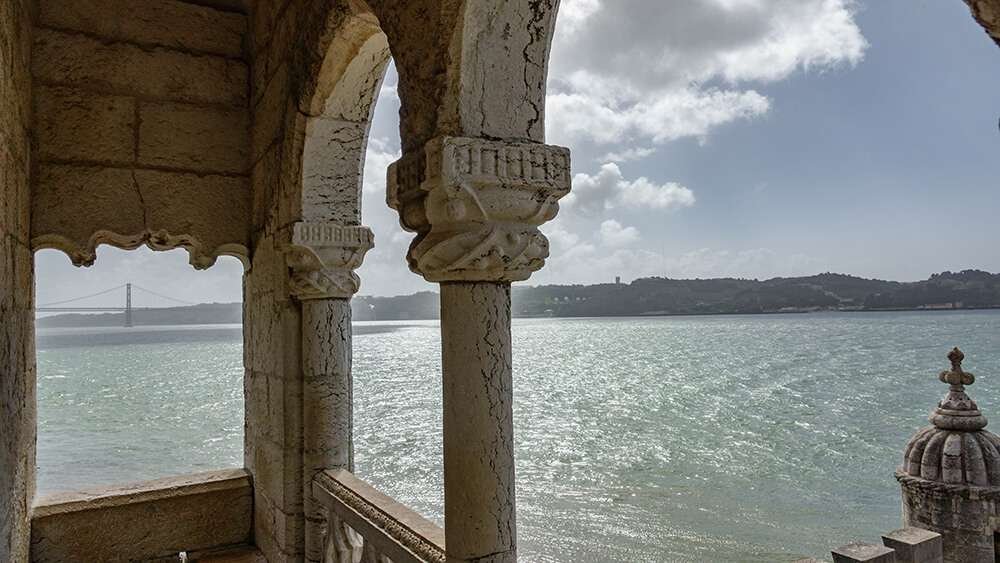
4. The Tower Terrace
Be sure to climb to the top of the Belém Tower. A spiral staircase will take you all the way up to a roof terrace. There you will be rewarded with a breathtaking panoramic view of the riverside and the surrounding area.
5. Attractions nearby
When you visit the Tower of Belém, you should also take time to explore the Belém neighborhood, one of Lisbon’s most historic districts. It is filled with centuries-old architecture, renowned museums and some of the country's best pastry shops.
Other places worth a visit are the Manueline-style Jerónimos Monastery, a UNESCO World Heritage Site, with the tomb of Vasco de Gama, and the magnificent Monument to the Discoveries. This monument celebrating Portuguese seafarers and explorers depicts 33 important figures of the Portuguese late Middle Ages, including explorers, kings and artists. You can even go inside the building, which houses an auditorium and an exhibition hall, and climb up to the observation deck, offering a view of the surrounding area and the Tower of Belém.
→ The Tower of Belém shares the neighborhood with many of Lisbon's five star hotels and is just a short distance from some of the city's most romantic hotels for honeymoons or getaways. Check out complete lists before making a reservation.
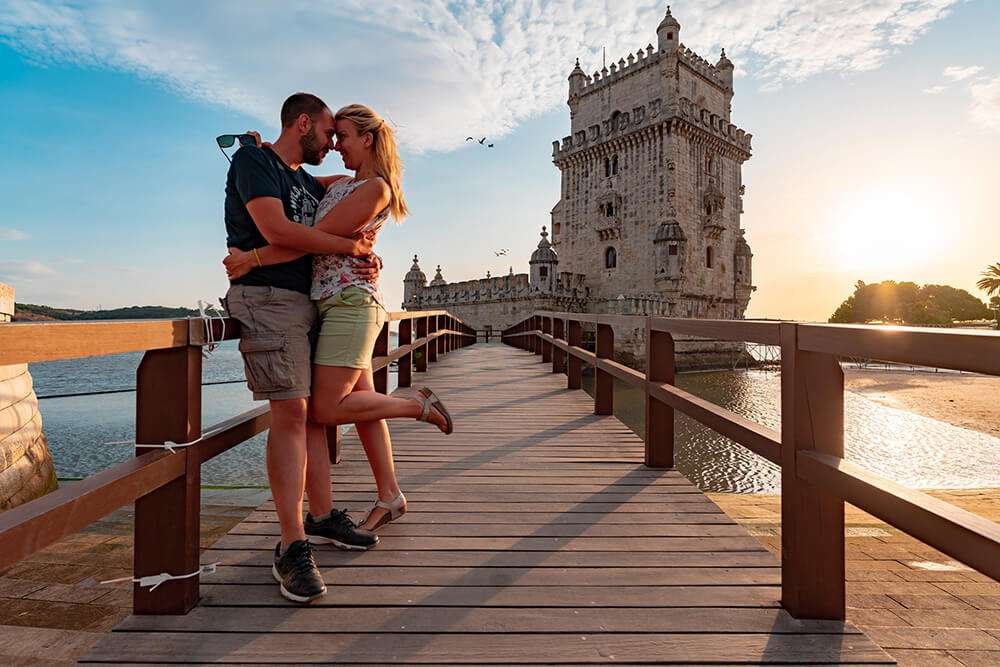
How to Get to the Tower of Belém?
The Tower of Belém is located on the waterfront at the historic district of Belém.
From Praça do Comércio: Take the Tram 15E and go 17 stops to “Lg. Princesa” station. From here, it is just a 6-minutes walk.
Need to know more about getting around the city? Check out the full guide to Lisbon's public transportation and tickets.
FAQ about Tower of Belém
The Tower of Belém is located on the waterfront at the historic district of Belém.
The Belém Tower was built as a defense system for those who wanted to enter from the Tagus River. In addition, it served as a ceremonial gateway to Lisbon, where the ships were embarked and disembarked.
The Tower of Belém was built between 1514 and 1519.

History & Facts about Tower of Belém
The Tower of Belém, officially the Tower of St. Vincent, was constructed under King Manuel I to protect the city against attacks from enemies. Originally it had been the idea of King John II to place a ship as a defensive post at the entrance to the Tagus, but his successor, King Manuel, pursued the plan to build the Tower of Belém instead.
While today the tower sits on the north side of the Tagus River, it was originally built on a small island. However, after the severe earthquake of 1755, the island shifted due to the change in the flow of the river. Over many centuries, the location of the Tower of Belém moved to the riverbank and the island disappeared.
The Tower of Belém was not only a military fortress, but also served many other purposes during its 500-year history. It was the starting point of seafarers into unknown worlds, including Portuguese navigator Vasco da Gama. After the Spanish occupation in 1580, the tower was used as a dungeon for political prisoners, who were kept in the former ammunition depot that was constantly flooded by the river. Later, it served as a lighthouse and customs house.
The Tower of Belém has been listed as a UNESCO World Heritage Site in 1983. Since 2007, it has been classified as one of the Seven Wonders of Portugal. Today, it is one of the most visited attractions in Lisbon.
Contact & Map
- Address: Torre de Belém, Av. Brasília, 1400-038 Lisboa, Portugal
- Opening Hours: October to March: From 10 to 17:30; April to September: From 10 to 18:30
- Public Transport: Tram 15E, Lg. Princesa Stop
- Tickets: BelémTowerTickets.com
Lisbon Tours & Tickets
Discover Lisbon today with the most popular tours & tickets without standing in line.

